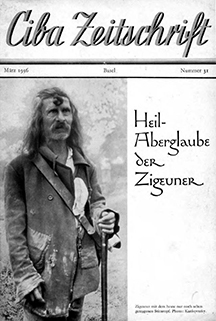
Heil-Aberglaube der Zigeuner
re-digitized issue 31 from March, 1936 of the house journal of pharmaceutical Company CIBA
More...We kindly inform you that, as long as the subject affiliation of our 300.000+ articles is in progress, you might get unsufficient or no results on your third level or second level search. In this case, please broaden your search criteria.

re-digitized issue 31 from March, 1936 of the house journal of pharmaceutical Company CIBA
More...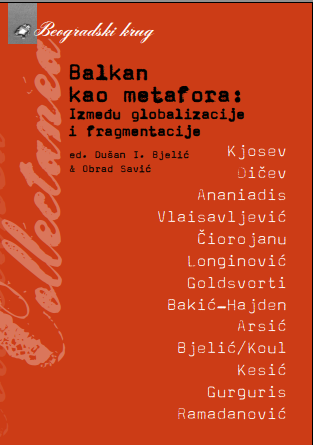
Kao stvorenje bezvremenog, ne-mislećeg ništavila, Stokerov (Stoker) grof Drakula nije ništa drugo do inkarnacija jednog fantazma koji proganja Evropu počev od njegovog književnog začeća 1897. godine. I dok se gotski vampir, poput kakve prastare, zaboravljene sile, uzdizao iz senki putem Stokerove narativne razrade evropskih trauma prošlosti, viktorijanska Engleska posmatrala je kako se tradicionalne ulične petrolejke zamenjuju novim električnim svetiljkama. Zbunjeni pripovedač Drakule morao je da se suoči s ovom zlom utvarom, koju kao da nisu ni dotakli tehnološki procesi »elektrifikacije«, i koja je i dalje bila spremna da putem nasilja toli svoju večnu glad.
More...
U bici koja se vodi na polju istoriografije između istine i predrasuda, moramo priznati da obično pobeđuju predrasude. … Zbog takvog ishoda mnoge istorijske epohe su postale žrtve predrasuda, a najviše ona koju poznajemo kao doba nakon Rimskog carstva – Vizantija. Još od vremena kada su naši neotesani krstaški preci po prvi put ugledali Carigrad, i kada su se – s prezrivim gađenjem – susreli sa društvom u kojem su svi umeli da čitaju i pišu, gde su ljudi jeli viljuškama, i zalagali se za diplomatiju pre nego za rat, još od tada kod nas vlada moda da se o Vizantijcima govori s podsmehom, i da se njihovo ime izjednačava s dekadencijom.
More...
Za vreme moje prve posete Zapadu 1990. godine, predstavljali su me kao »naučnicu iz Istočne Evrope«. To se dogodilo nekoliko meseci posle pada Berlinskog zida. Tri godine kasnije, u Sjedinjenim Američkim Državama, predstavljena sam kao »profesorka sa Balkana«. Bilo je to u doba kada su se na naslovnim stranama svih listova i časopisa mogle videti slike užasa iz Bosne.
More...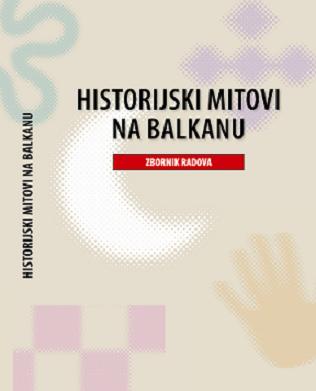
Simbolična dimenzija politike uvijek je u nekom odnosu s materijalnom osnovicom političke moći, a svako društvo ima samosvojan politički imaginarij koji ga defi nira kroz mrežu simbolično izgrađena značenja i posvećuje njegove norme; zajednica ili njeni segmenti koriste se elementima toga imaginarija u svojoj “identitetskoj borbi”.1 U tom je smislu u petstoljetnom rasponu u Hrvatskoj ključan motiv predziđa kršćanstva/Europe u značenjskim i funkcionalnim varijacijama ovisnima o odnosima političke moći, unutrašnjima i vanjskima. U njemu se zrcali združivanje i/ili razdvajanje simboličnih, kulturalnih i političkih granica; on daje kriterije prema kojima se te granice konceptualiziraju.
More...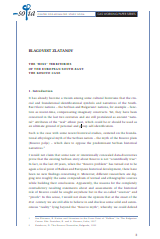
The main objective of the research paper is to develop an analytical theory of identity, which in turn would make possible the study of identity on a textual level. Another objective is to show that Balkan identity is traumatic and current research on the topic does no more than perpetuate this trauma. And fi nally, drawing on the analytical theory of identity developed in the fi rst part of the study, the paper embarks on describing the identity games played by various actors involved in the Balkan presentations at the Chicago 1893 World’s Exposition. The current abridged version of the paper has only the humble goal of presenting the theoretical framework of the study and its general fi ndings. The presentation will go along the following lines: (1) I will try to describe the settings of the Chicago 1893 World Columbian Exhibition (which will be my object of study); (2) I will try to explain how we can study identity in the case of World Expositions; (3) I will try to give an account of the visual presentation of Bulgarian identity at the Chicago World Fair.
More...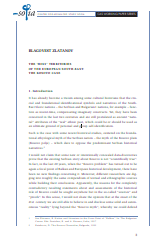
This text will focus on the identity of the Karakachans in Bulgaria – a former nomadic community forced to settle down at the end of the 50s and the beginning of the 60s of the last century. The Karakachans are Orthodox Christians and speak a specific Greek dialect. That, together with their former way of life and cultural tradition, makes them different from both Greeks and Bulgarians. This particular group gives a unique opportunity to outline the constant mental mapping and re-mapping carried out under specifi c national and transborder circumstances. The Karakachan case is, in a way, comparable to the “ethnic revivals” or “re appearances” of other small Balkan ethnic groups on the social, economic and political scene of the changing region1 Nowadays the small ethnic (local, ethno-confessional) groups (Karakachans, Gagauz, Gorani, Yuruks, Armenians and others) are not at the centre of the most severe Balkan confl icts. Some of them, the Vlachs/Aromanians, for example, have occasionally been in the focus of international contradictions; however, the gradual social integration, assimilation and emigration have reduced them in number and importance during and after the clashes of the “big” nationalisms. The very survival of some of the small Balkan ethnicities in the near decades is under question. Given the fact that both many of the Bulgarian Karakachans and quite a few authors share this view, the presentday situation proves to be much more complex and controversial. [...]
More...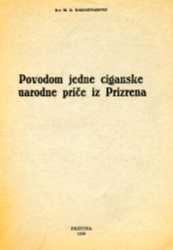
Offprint drawn from „GLASNIK MUZEJA KOSOVA I METOHIJE, KNJ. I, PRIŠTINA 1956“ [Bulletin of the Museum of Kosovo and Metohija, Vol I, Priština 1956] // This work deals with a Gipsy folk-tale noted down at Prizren, which tells how once a wife has had two husbands simultaneously. In connection with this motive, a consideration is made to the occurrence of multi-husbandry or polyandry, to be suppose finally that this tale as well — with such subject — could be a confirmation of Gipsy’s origin from India, where we find such occurrences today, too.
More...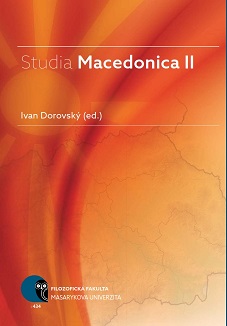
The life and the spirit of every nation is a reflection of the traditional rites and customs practiced by the respective nation, which can be confirmed by the lexical fund as well. The Slavonic nature of the traditional culture is unquestionable, so the comparative analysis confirms numerous terms with identical semantic structure of the rituals related to the life cycle in the Macedonian, Serbian and Bulgarian language. Part of this lexis belongs to certain Macedonian regions and it represents a significant mark of a regional identity, while another part overlaps with the lexis of the Serbian and Bulgarian language, indicating to rites and customs that can be considered as Balkan, South Slavonic or Pan Slavonic features.
More...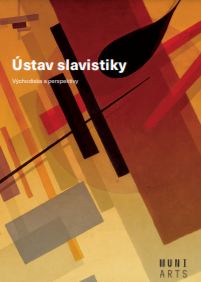
Slavistická bádání, zaměřená směrem k Balkánu, především ovšem k tomu slovanskému, byla na Filozofické fakultě brněnské univerzity přítomna již od jejího založení v roce 1919. Filozofická fakulta tehdy patřila mezi zakládající fakulty druhé české univerzity, o jejíž vznik se významně zasloužil první prezident československé republiky Tomáš Garrigue Masaryk, po němž také brněnská univerzita dostala své jméno. T. G. Masaryk, sám univerzitní profesor, totiž již v 90. letech 19. století zdůrazňoval potřebu co nejširší konkurence ve vědeckém životě a upozorňoval na fakt, že jediná česká univerzita – pražská (do roku 1918 Karlo-Ferdinandova, po vzniku Československa již jen Karlova) – nutně potřebuje ke svému rozvoji konkurentku v národním rámci. Snaha prosadit zřízení druhé české univerzity se stala jednou z priorit nejen jeho politické činnosti, ale i politického boje českých kruhů v tehdy německou menšinou vedeném Brně. Došla však naplnění až po vzniku Československé republiky v roce 1918. Filozofická fakulta tak jako součást nové Masarykovy univerzity dostala do vínku úkol stát se druhým ohniskem národní vzdělanosti a osvěty. V pamětní zakládací listině z roku 1919 jí bylo uloženo, aby „žila, mohutněla a kvetla v ušlechtilém závodění se starší sestrou pražskou“. A to se jí dařilo mj. právě v přístupu k jihoslovanské problematice.
More...
Badatelský zájem o polský jazyk, literaturu, dějiny a kulturu má v českém vědeckém prostředí dlouhou a bohatou tradici. Jeho počátky sahají do období českého národního obrození a jsou spjaty především se snahou o hlubší poznávání slovanského světa. Ten byl v této době vnímán jako blízký a přirozený kontext, v němž se utváří a rozvíjí také vlastní český národní život. Motivace tehdejších badatelů vycházela zejména z myšlenky slovanské vzájemnosti, která vyplývala ze složitého politického a národnostního postavení slovanských národů v rámci habsburské monarchie.68 Ve slovanském kontextu byla v centru pozornosti tehdejších českých intelektuálních elit především problematika ruská a polská, jež se stala spolu s národní filologií základem celé české slavistiky. Pro další vývoj českých slavistických, resp. polonistických studií byla významná skutečnost, že prvotní buditelsky a emotivně založené slovanofilství postupně získávalo kritický a vědecký charakter. Navíc ustupovalo pojetí Slovanů jako víceméně jednotného národa o několika kmenech a nářečích a začalo se prosazovat vnímání slovanského světa jako souboru svébytných a rozdílných národních kultur. Důsledkem změny paradigmatu byl také proces diferenciace a profilace slavistických bádání.
More...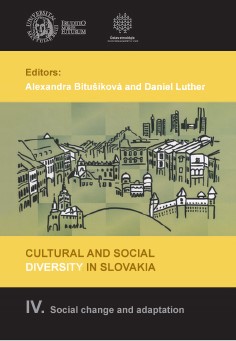
The social and political changes in Slovakia after 1989 opened many new challenges, tasks, and issues. One of the consequences of these changes was the fact that the public and expert discourse started to raise topics on the modern history of Slovakia - before taboo, overlooked, or ideologically interpreted by the Communist regime. A request and interest suddenly emerged to explore our own history without the dictate of ideology, independently and openly. The history topics which were previously taboo referred to the period of the wartime Slovak state (1939-1945) and its totalitarian regime, and the forms of the Holocaust in Slovakia. Historians and social scientists started to explore these topics from the perspective of their science disciplines. In order to contribute to a critical re-assessment of the ideologically burdened images of the past and to the overcoming of historic stereotypes surviving in our societies, the oral history method is primarily used in my ethnological research. It represents an appropriate tool for the capturing of subjective testimonies of experienced events at a certain historic period. Thanks to this method, it is possible to obtain an interpretation of historic events from the perspective of individuals who are part of the society. My research is based on the assumption that the affiliation of a witness to a certain social group or groups determines his/her testimony, and the memory processes depend not only on external stimuli, but also on the particular social context (Halbwachs 1980; Assman 1992; Ferencová - Nosková 2009: 21-31).
More...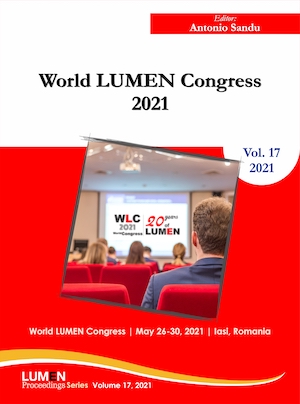
Research on language acquisition is a central theme in sociolinguistic research. Contemporary social, economic and political processes affect the life of communities and the languages what they speak. Globalization, migration and the enlargement of the European Union can significantly change the role and the future of majority and minority languages. In this research, we aim to reveal the family level language choice strategies of the Hungarian community in the small town of Margitha (Bihor County, Romania), discussing the role of family related social framework that positively or negatively influences the motivation of minority students to acquire knowledge of the Romanian language. For this purpose, we used both quantitative and qualitative methodological approaches. The results of research confirm that in multi-ethnic communities perhaps the most important, however at the same time the most vulnerable component of ethnic identity is the linguistic identity, which plays a key role in shaping the cultural landmarks and contents that determine the social integration of the individual. The positive family effects of socialization with the Hungarian language can be observed mostly in the ethnically homogeneous family. However, if one of the spouses is ethnic Romanian, the dominant language of communication within the family is more likely to be the Romanian language.
More...
Ukraine is a multinational and multicultural country. Though Ukrainian scientists have studied the issue of multicultural education from different aspects, nevertheless, there is no special or ideal model of multicultural education. That is why we decided to monitor the students’ multicultural education state at secondary schools of Ukraine. In order to identify the state of multicultural education in Ukrainian schools we conducted an empirical study in schools of Cherkasy region among primary, secondary and senior level students. The main method was determined as questionnaire, which is provided for clarification of issues of national-patriotic and multicultural orientation. Accordingly, questionnaires that combined quantitative and qualitative data collection were offered to the 4th, 6th and 11th grade students in some schools in Uman and Uman district, covering 296 respondents. Thus, the monitoring of the state of multicultural education in Ukrainian school education has shown that the problem of multicultural upbringing of children and young people is addressed at the government level, relevant research is conducted, some aspects of multiculturalism are observed in educational programs of some subjects, but the level of multicultural education of students should be higher.
More...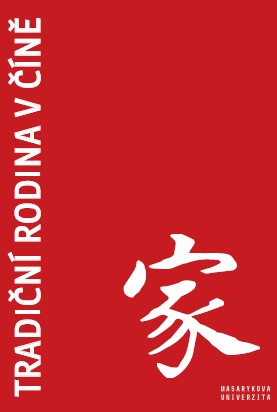
Rodina je základní společenskou jednotkou, která se jako pojem velmi obtížně vymezuje. K zápisu rodokmenů používáme graf (viz ilustrace 1.2), který by měl být alespoň dvougenerační. Muž se zapisuje symbolem trojúhelníku, žena symbolem kruhu. Neurčitý počet dětí, či jenom všeobecný zápis potomků značí symbol čtverce. Jedinec se nazývá ego a jeho generace se nazývá nultá. Graf čtený z hlediska jedince se nazývá egocentrický. Graf čtený z hlediska potomků je grafem prokreační rodiny – jinými slovy se orientuje na budoucnost. Graf z hlediska předků je grafem orientační rodiny čili je orientovaný na minulost.
More...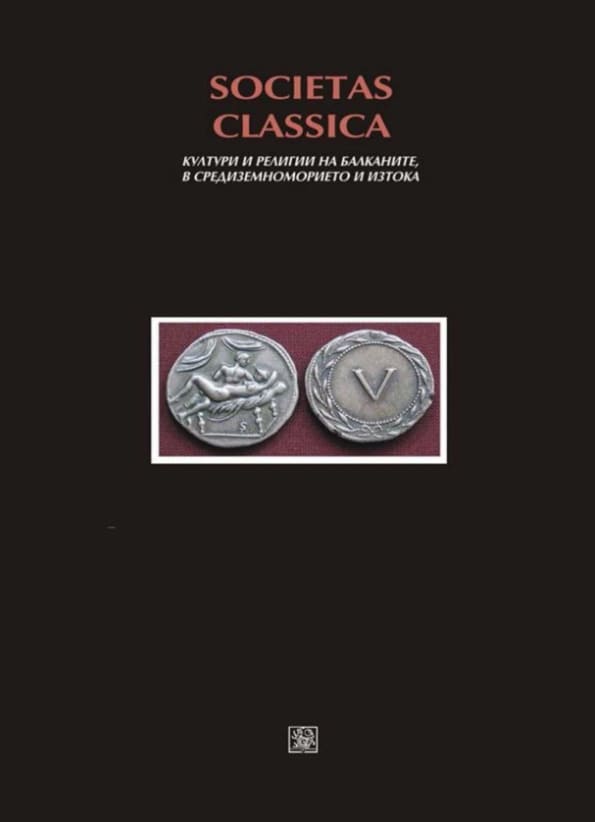
The present work is devoted to Chinese traditional family institution and organization of traditional family relationships in China. The present paper analyzes the noble and rural family in imperial China. The relationships between spouses are described, and the social roles of men, women and children in the family group are clarified. Paper also reveals some interesting cultural practices related to important life events, family cults in China in the past and the institution of concubines.The present work is devoted to Chinese traditional family institution and organization of traditional family relationships in China. The present paper analyzes the noble and rural family in imperial China. The relationships between spouses are described, and the social roles of men, women and children in the family group are clarified. Paper also reveals some interesting cultural practices related to important life events, family cults in China in the past and the institution of concubines.
More...
This work is a part of much broader and extensive research. The data was collected on the field, namely Beijing, by observing and interviewing Bulgarians residing in the city for different period of their lives. The current work briefly points out some cultural differences between China and Bulgaria and the way they affect the celebration of several traditional Bulgarian holidays, e.g. Christmas Eve, Easter etc. The most notable difference can be observed in the ways of preparing certain cuisines, the products (meat, vegetables, white cheese etc.) which the Chinese market offers to the customers as well as their quality or even their lack of. Another factor that influences the ways of celebration is whether the migrants have moved to Beijing alone or with their families or relatives. In the first case a close circle of friends takes on the role of the family. The work concludes with that the Chinese culture rarely influences the celebration of Bulgarian traditional holidays and they are comparatively preserved in the form they exist in back in Bulgaria.This work is a part of much broader and extensive research. The data was collected on the field, namely Beijing, by observing and interviewing Bulgarians residing in the city for different period of their lives. The current work briefly points out some cultural differences between China and Bulgaria and the way they affect the celebration of several traditional Bulgarian holidays, e.g. Christmas Eve, Easter etc. The most notable difference can be observed in the ways of preparing certain cuisines, the products (meat, vegetables, white cheese etc.) which the Chinese market offers to the customers as well as their quality or even their lack of. Another factor that influences the ways of celebration is whether the migrants have moved to Beijing alone or with their families or relatives. In the first case a close circle of friends takes on the role of the family. The work concludes with that the Chinese culture rarely influences the celebration of Bulgarian traditional holidays and they are comparatively preserved in the form they exist in back in Bulgaria.
More...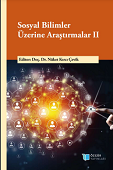
This study will analyze the lifestyles of Sephardic women in the Turkish city of Istanbul from the 1930s through the 1980s collected via oral history interviews from a Centropa project by Sephardim from Istanbul. The interviews with Turkish Sephardic women in the Centropa interview database will be supported by research conducted in the Şalom Newspaper archives in Istanbul, the Turkish Official Journal archival database research, as well as historical and anthropological material search at libraries. As Sephardic Jews speak Judeo-Spanish, this study aims to shed light on Judeo-Spanish words used by Sephardic women on social activities, emphasizing the importance of the Judeo-Spanish language. Besides, this study also aims to analyze the societal roles of Sephardic women as professionals, their pastime activities, their culinary traditions, the historical information about their quarters’ surroundings, and the occupations that disappeared, underlining the importance of the reforms Atatürk brought to all the women living in Turkey as a way of history and culture education.
More...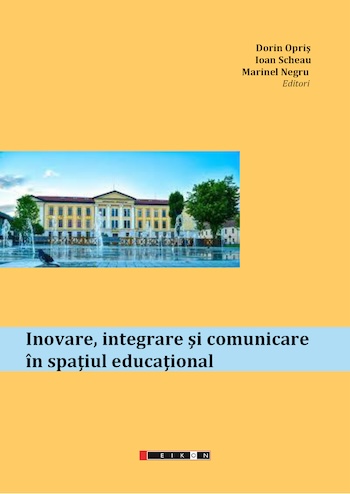
The social, cultural and historical context in which we live significantly influences our behavior and the decisions we make. In this paper, we aim to provide an analysis of the philosophy of inclusion - of recognizing the other, which advocates for a society in which people, regardless of abilities, ethnic origin, religion, or any other personal characteristic, have the right to a dignified life. This involves creating equal conditions for all, eliminating barriers and promoting diversity as a value. On the other hand, cancel culture has emerged, a notion present in recent discourse, to represent a framework in which people with opinions and behaviors that do not fit into the group ideology can be widely ostracized. Such a perspective implies an approach to identity that presupposes the existence of a form of history negotiated by groups, transmitted through institutions so that the targeted individuals recognize themselves in it.
More...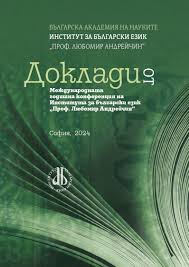
he article is a result of a research that is part of the execution of the project “The speech of Rechane village, Prizrensko (with a particular overview of the morphological system)” of the Department of Bulgarian Dialectology and Linguistic Geography of the Institute for Bulgarian Language – BAS. Its main goal is to present part of the lexical treasure of the dialect of Rechane and more specifically some of the ways of naming domestic and wild animals in it. In the analysis of the presented in the study zoonyms that are an interest from the viewpoint of semantics and word formation, it is stressed on both their phonetic and morphological peculiarities, which represent an evidence for the belonging of the researched dialect to the Bulgarian linguistic field. The research is done in dialect context by stressing the bonds between the speech of Rechane and other Bulgarian dialects. The analysis is done entirely based on material that is personally collected by the author himself during the conduct of the candidate student courses of Bulgarian language, Literature, History and Culture for the Bulgarian minority in the Rechane village, Prizrensko, in the period between years 2015-2023.
More...